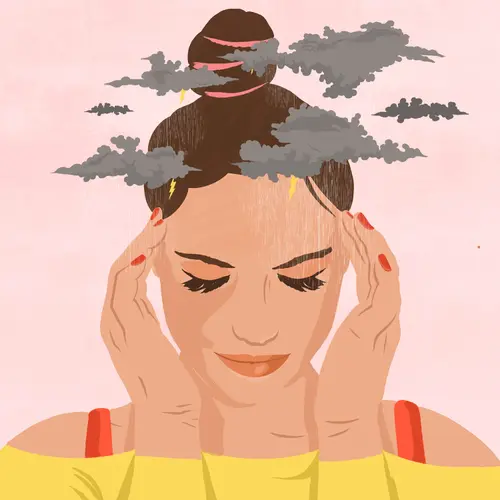A migraine will make your head hurt, but there’s more to it than a typical headache. You can have more than head pain when you get one. The effects can be so strong they disrupt school or work, and your relationships.
There are key features that make migraine distinct from tension headaches (the most common kind of headache) and cluster headaches, which are rare.
Signs Ahead of Time
Your body can let you know a migraine headache is on the way. Prodrome is when small changes happen hours or 1 to 2 days before the attack. Signature symptoms include yawns, a desire for specific foods, and peeing often. Yours could differ.
Sensory and Speech Changes
Sometimes, a migraine temporarily affects your speech and senses before, after, or while you have the headache. Doctors call this aura. Electrical activity moves over the brain and results in these symptoms. They can start slowly and last up to 60 minutes. A cluster headache might begin with aura as well, but a tension headache doesn’t.
Stages
There are four stages of migraine. You may not go through them all or have them with every attack.
Prodrome is first. Next comes aura, which can also signal that a migraine headache will begin soon. Pain starts in the third stage: the headache or attack phase. Postdrome takes place afterward. Confusion, tiredness, or even intense joy can follow.
Pain Type
A tension headache comes with a dull ache and tightness or pressure; a migraine headache creates strong throbs or pulses. You feel it on one or both sides of your head. A cluster headache causes extreme stabbing or burning near an eye.
Upset Gut
The inflammation that causes a migraine headache can also make you nauseated or throw up. You might have belly pain or an upset stomach too. These issues don’t happen with a tension headache. A cluster headache could make you queasy before it starts.
Sensitivities
Light, noise, and certain smells can heighten your migraine headache. That is also thanks to inflammation. You may be sensitive to touch as well. Activity can make it more intense too. Movement may not affect tension headaches and helps some people deal with a cluster headache. Light or sound sensitivity can happen with a tension headache, but it’s unusual. A cluster headache can also have these symptoms.
How Migraine Changes Everyday Life
Your migraine experience may vary compared to someone else’s. The attacks might last a few hours or days. You could have many in a month or one every now and then. Plus, the issues that can come with it may not all affect you.
Some people find prevention or treatment strategies that allow them to get through everyday tasks. Others have a tougher time and they need to pause daily life for rest or sleep in a dark, quiet space. You may not make it to work or school. If you do, your performance or schoolwork can suffer. Migraines can also dim quality time with friends and family. All of this can lead to feeling depressed.
Migraines may not always be part of your life, though. They usually get better as time goes on. Once you are past your 30s, they usually happen less often and aren’t as intense. They may even go away after 50.

